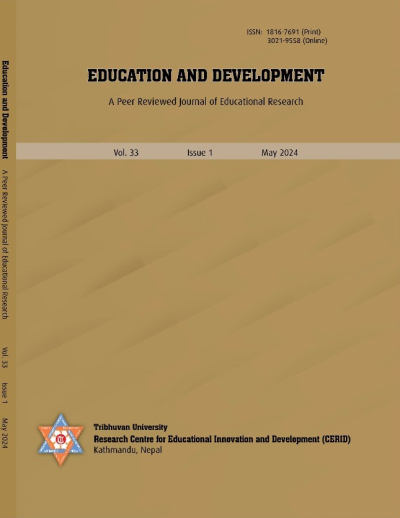Transformative Principles and Strategies of Education in China During the Cultural Revolution
DOI:
https://doi.org/10.3126/ed.v33i1.66600Keywords:
anti-bourgeois, productive labour, proletarian, socialist, trial-basedAbstract
This article attempts to explore the aims, principles and strategies of education adopted in China during the Proletarian Cultural Revolution which lasted for a decade (1966-1976). Although almost five decades have passed since its closure, it is still eliciting strong opinions for and against. Some approve it for its attempts of radical social transformation whereas others condemn it as a source of social and political disasters. Instead of taking the either side, this paper tries to present the theoretical premises and practices adopted in that period by using the authentic documents published by the Chinese Communist Party and the government. The analysis of these and other materials leads the writers to the conclusion that the education of that period was trial-based and strictly guided by Marxist- Leninist revolutionary principles and in many ways marked a radical departure not only from the old Chinese system of schooling but also from the contemporary education that was going on around the world.
Downloads
Downloads
Published
How to Cite
Issue
Section
License
Copyright (c) 2024 Author

This work is licensed under a Creative Commons Attribution-NonCommercial 4.0 International License.
CC BY-NC 4.0. This license requires that reusers give credit to the creator. It allows reusers to distribute, remix, adapt, and build upon the material in any medium or format, for noncommercial purposes only.




